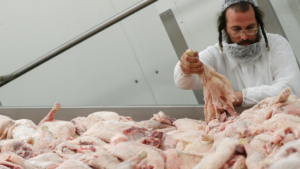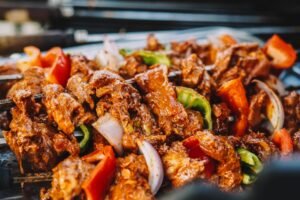Muslim Event: Eid-ul-Adha
Eid ul Adha is a festive day for Muslims throughout the world and is celebrated on the tenth day of Zhul-Hijjah (the final month of the Islamic calendar). On this day Muslims commemorate the sacrifice given by the forefather of Islam, Abraham (peace be upon him) by sacrificing an animal themselves. Through this practice they demonstrate total obedience and submission to Allah’s command and will.
The sacrifice commences after the break of dawn in remote rural areas and after the Eid prayer (a special prayer observed on the morning of this day in urbanized areas. Every Muslim who owns 613.35 grams of silver or its equal value in cash as a surplus to his basic needs is obliged to offer a sacrifice on this day. If it is not possible for one to offer it on this day for some reason then he may offer it within the next two days i.e. 11th and 12th Zhul-Hijjah.
It is preferable that a Muslim slaughters the sacrificial animal himself, however if he is unable to do so he may authorize another Muslim to carry out the slaughter on his behalf. In this situation it is better for him to at least be present at the time of slaughter.
The animals Muslims sacrifice on this occasion are;
- A goat of at least one year of age
- A sheep of at least six months of age
- A cow, ox or buffalo of at least two years of age
- A camel of at least five years of age
These animals can only be used for the sacrifice if they are free from the following defects;
- Blind or one eyed
- Lame
- Extremely thin
- Toothless or majority of its teeth are missing
- Born without ears
- One-third of its ear, nose or tail is missing or has been cut off.
- One cow, ox, buffalo or camel can be sacrificed on behalf of seven people if they jointly purchase it. In the case of a goat or a sheep only one person can use it as a sacrificial animal.
Once the animal has been sacrificed a person can utilize its meat however he wishes, by either keeping it all for personal consumption or by distributing it to the needy and poor. It is however preferable that he distributes one-third of the meat to the poor, the other one-third between his relatives and keep the remainder for himself. If an animal has been sacrificed on behalf of more than one person then its meat must be equally split between the owners strictly by weight and not at random or by mere guessing. All parts of the sacrificed animal can be used for personal benefit but non can be sold nor given to the butcher as a part of his service charge.



